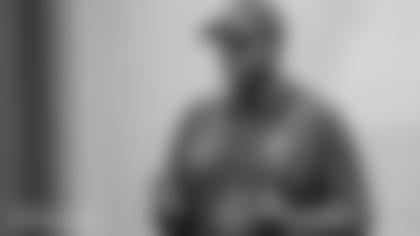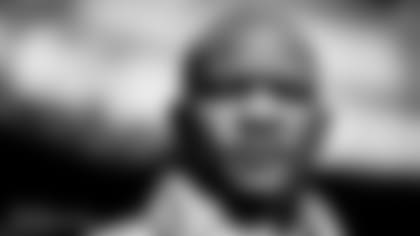The Miami Dolphins will host a celebration of life honoring Coach Shula on Saturday, October 2. To RSVP, visit miamidolphins.com/don-shula/
If anyone was greater than the sum of his parts, it was Don Shula.
Football fans everywhere certainly know him as the winningest coach in NFL history and architect of two Super Bowl championship, including the only Perfect Season ever.
His numbers speak for themselves but sometimes hide how truly great he was as a coach. He was an innovator who helped change the face of the game. Foremost among his many coaching accomplishments was the introduction of strategic substitution when he introduced the "53 defense," the first time different personnel were utilized on the field depending on the down and distance.
And he wasn't afraid to make hard decisions. Perhaps the hardest was in the middle of the 1972 AFC Championship Game in when he benched Earl Morrall, who basically had played at an MVP level after Bob Griese was injured early that season, and replaced him with Griese, who was just coming off that injury. Hard at it was, it turned out to be the right call as Griese went on to rally the team and put them back on track to finish their undefeated season.

But it wasn't just the victories and championships that made Shula so special. It was the way he won; the principals that shaped not only his life but also the lives of those who were fortunate to know him. It led to universal respect in a field where that is almost impossible to come by.
Those principals were grounded in his unshakable integrity and his belief in hard work. No one had a greater sense of ethics or the understanding that hard work would produce "The Winning Edge," and he never deviated from those core beliefs.
But above all was his devotion to his family. What he couldn't give in time he made up for by his sheer joy whenever he was around those he loved.
Although the time he could spend with his children was so limited because of the demands of his job, he loved being around them. Whenever they would visit practice when they were young, he would pick them up and yell with delight, "Hang time!"

His office at Biscayne College where the Dolphins trained was adorned with game balls that lined his shelves. But they weren't from the milestone victories of his career. No, those balls had the name and birthday of each of his children. To him, a reminder of his family was more important than a reminder of his wins.
And he was so proud when his two sons, Dave and Mike, followed him into the coaching profession. He lived and died with their wins and losses.
No one knew that better than Chip Namias, the Dolphins PR Director when Mike was playing quarterback at Alabama. Namias always met the Dolphins' charter at the airport when the team arrived on Saturday for a road game. Without fail, once the plane landed Shula would bound down the jet way stairs, make a beeline for him, and ask him the Crimson Tide score. And God help Namias if he didn't have it.
That was in the dark ages before mobile devices, so to get the score Namias would always have to find a pay phone and call the press box wherever Alabama was playing. Once, though, he couldn't get through and panicked as he saw Shula heading his way. Sure enough, Shula immediately asked him how "Mikey" was doing.
"Coach, it's 0-0 in the first," Namias croaked, hoping Shula would fall for his gambit. Satisfied, Shula walked away saying, "OK, let me know when you get a halftime score." Namias felt like a death-row inmate who got a last-minute reprieve.
That love for his family is why Shula was unusually subdued amidst all the hoopla leading up to the first game between the Dolphins and Dave's Cincinnati Bengals, pitting father against son as head coaches for the first time ever in the NFL. He knew that if he won, Dave would have to lose. That was tough to take. And when the game ended with a Dolphins comeback victory, as soon as Shula finished talking to his team about their win, he made a beeline to the Bengals locker room to console Dave on his loss.
While family, even above football, was the centerpiece of Shula's life, his sense of integrity defined it.
To Shula, either you did things the right way or you didn't do them at all. And that was especially true regarding the way he coached. He certainly looked for every advantage he could find, but always within the rules.
That's why he always looked with disdain at anyone who painted outside the lines. When Patriots head coach Ron Meyer called in a snowplow to clear a spot on a snow-covered field in order to kick a game-winning field goal, Shula considered it such a breach of ethics that he never referred to Meyer by name again, always calling him "that coach up north."
And Shula practiced what he preached. After the players were done practicing for the day during training camp, he would run laps around the field while everyone else headed for the showers. Even though there was nobody out there to watch him, Shula never, ever cut corners. He would always run outside the end zone pylons instead of shaving off a few yards by cutting inside them. It was probably something he didn't even consider.
But when quarterbacks coach Gary Stevens first joined him for a run, he made a mistake he would soon regret. On the first lap, Stevens cut inside one of the pylons. As soon as Shula caught up to him, he bellowed at Stevens, "Run the whole damn field!"
Stevens never ran inside the pylons again.
When it came to integrity, to Coach Shula there was no cutting corners.
That same disdain for shortcuts of any kind was also key to what he felt it took to be successful. He won because he worked harder than anyone else to find "The Winning Edge" that made the difference between victory and defeat.

Twenty years after that phrase was inscribed on the Dolphins' 1972 Super Bowl ring, I learned personally what it meant.
The Dolphins were playing the Seahawks in Seattle, and I left a few days before the game to make sure all the details for the road trip were in place when the team arrived. As we headed for the Kingdome on Saturday for our usual walk-through, we got held up by a passing freight train near the stadium. I was sitting across from Shula on the bus next to his long-time assistant, Carl Taseff, and when we got delayed by the train, Shula gave me the same look he gave referees when they blew a call.
"What the hell is this?" bellowed Shula. "Why are we stuck here? Why didn't you know about this? What have you been doing here all week?"
I looked at Taseff and said with exasperation," You've got to be kidding. Did he really expect me to check the damn train schedule?"
Carl glanced up from the playbook he was studying, looked me in the eye, and said quietly, "Yes, because that's exactly what he would have done."
That defined the Winning Edge. And when you added to that Shula's fierce competitiveness, you had someone who simply hated to lose -- and rarely did.
Joe Namath, the New York Jets' Hall of Fame quarterback who helped beat Shula's Baltimore Colts in Super Bowl III, found that out first-hand. He also saw that Shula had a pretty long memory, too.
"I really didn't know Shula at the time, but one day after I retired, we were both flying back to Florida on a charter along with my daughter, Jessica, who was around ten at the time," recalled Namath. "They started to play a game of gin, and Shula wound up beating her. When he did, he turned to me and said, 'Now we're even.'
"He was kidding -- I think."
And it wasn't just football or cards -- it was anywhere they kept score.
Shula used to host an annual Dolphins golf tournament before the start of training camp and would pick the teams himself. To no one's surprise, Dick Anderson, who was by far the best golfer among the current or former players attending, always wound up on Shula's team.
It got to be such a regular occurrence that Anderson automatically would head to Shula's golf cart at the start of each tournament. But one year when Anderson made his way to the first tee to join Shula, he saw someone else sitting in his usual seat in their cart. As he got closer and saw who it was, he realized why he wasn't playing with Shula that day -- he was replaced by long-time PGA golf pro Jerry Sehlke.
Shula won that tournament, too.
Even with that hard-nose exterior, there was a side of Shula that only his players saw -- someone who could run them ragged during the day in pursuit of excellence, but also could laugh alongside them as well afterwards in the locker room. And every so often, he was even the target of that laughter.
Once during the Perfect Season era, Manny Fernandez and a few other Dolphins caught a small alligator in the Everglades and brought it back to the team's training facility. Somehow, somebody thought it would be a good idea to put it in Coach Shula's shower.
Sure enough, after practice, Shula, clad in only a towel, headed to the shower stall and just as he opened the door, he saw the alligator. He immediately turned tail and, still wearing his towel, bolted in the other direction, cursing at his players as he passed them in the hallway. When he got to Larry Csonka, well-known as the practical joker on the team, he screamed, "Zonk, this is all your fault. I know you're behind this!"
To which Csonka responded, "Coach, I don't know why you're yelling at me. I was the one who suggested we better tape his mouth shut."
With that, Shula laughed as hard as everyone else.
Over time, that mutual respect developed into lasting friendships. There was a unique bond between Shula and his players that spanned over 50 years, from the time he started coaching the Dolphins in 1970 to his passing last year. It was evident collectively every time his teams would get together, and it was just as evident on an individual basis.
In the latter part of his life, Shula would meet Bob Griese, Howard Schnellenberger, and a few other lucky individuals once a month at Gulfstream Racetrack for lunch, some betting, and a lot of kibitzing. And it wouldn't take long for the needling to begin.
In between races, Griese would often kid Shula about plays he called that that backfired. Once, Griese brought up a play where he was tackled for a big loss. Shula fired back, "If you remember, you didn't run the play correctly. And when you came back to the sidelines and asked what we should run for third-and-long, I said, 'You call the play. You got us in this mess in the first place, so you better figure out a way to get us out of it.'"
And on and on it went, race after race. They were like an old married couple going back and forth, enjoying each other's company in ways only they could understand.
And Griese wasn't alone. Shula forged a long-time relationship with so many of his players, something that is rare to find anywhere else in the NFL. But that was Coach Shula – rare in so many ways that defies a simple explanation. He was certainly a Hall of Fame coach, but beyond that, and even better, he was a Hall of Fame person.
We will miss him now that he is gone, but we should also count our blessings that we had him in our midst for so long. He was truly one of a kind.














